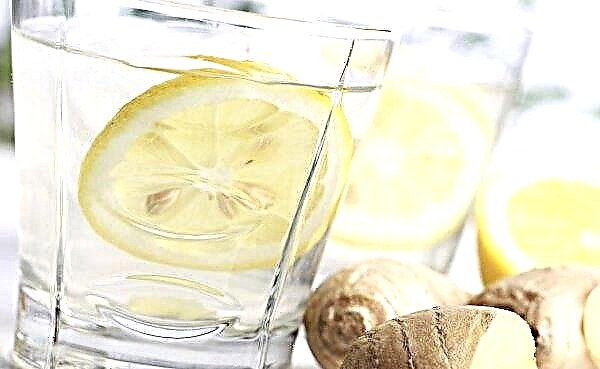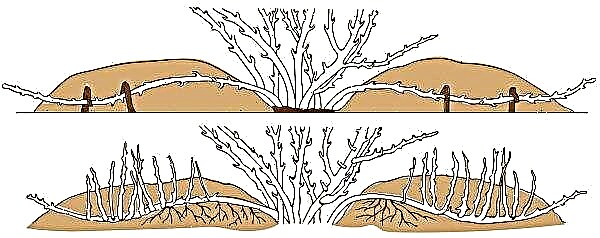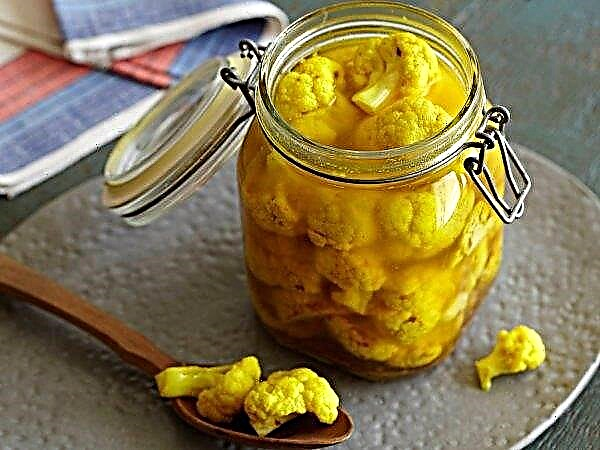Ginger oil is an excellent treatment for many different ailments that has been used in many cultures for centuries. This article will discuss the most important advantages of its use and methods of use for cosmetic and medicinal purposes.
Ginger Essential Oils
The product is obtained from the rhizome of a plant with the botanical name Zingiber Officinale. Ginger owes its unusual taste to the presence of a chemical compound called gingerol.
For many centuries, the root has been used in the cuisines of various countries as a spice. Currently, the root is widely used in almost all over the world. It is an integral part of the cuisine of Asian countries and is used as a spice enhancing the taste of food. It is used in the preparation of meat and fish dishes, as well as in sauces, salads and drinks. Rhizome and ginger oil are used as natural preservatives and flavorings.
When using ginger oil extract, you need to remember that its effect is quite strong, so it can be used in small quantities. This remedy goes well with other essential oils.for example, with lemon, cedar, eucalyptus, rosemary, geranium, sandalwood, myrtle, bergamot, orange.
Did you know? In the Indian epic Mahabharata, written around the 4th century BC. e. in Sanskrit, a dish of stew is described using ginger as one of the main ingredients. In Ayurvedic medicine, ginger is considered a key healing plant.
Chemical characteristics
Part of the plant, commonly used as a spice and even a medicinal product, is a tuberous rhizome. It contains 2-3% of essential oil, which contains many substances with a wide range of properties. The main chemical components of ginger essential oil are camphene, a-pinene, b-pinene, zingibern, geraniol, borneol, neral, geranyl acetate, 1,8-cineole, citral, b-bisabolin, linalool, nerol, geranial and y-terpineol. These components contribute to the healing properties of the root. Ginger contains many beneficial minerals, such as calcium, phosphorus, iron, magnesium, copper, zinc and some others.
Ginger contains many beneficial minerals, such as calcium, phosphorus, iron, magnesium, copper, zinc and some others.
How to get
Ginger oil is obtained by steam distillation, which allows you to save valuable properties. The product has a light texture, light yellow color and a pleasant, but tart taste. The smell varies depending on the method of distillation, as well as on the type of ginger. However, the most fragrant ginger oil is obtained by distilling fresh ginger rhizomes. 
Beneficial features
Some applications have been known for thousands of years, while others are only now being discovered. Thanks to a number of substances contained in ginger rhizomes, its action can be observed at many levels - both in the treatment of symptoms of certain diseases, and in the field of body care. The tool has effective stimulating, analgesic and expectorant, antiseptic, anti-inflammatory and carminative properties.
Did you know? Ginger oil repels mosquitoes, which are the main carriers of malaria and yellow fever.
- Useful properties of ginger oil:
- Reduces pain and stops inflammation. Ginger tuber inhibits the production of prostaglandins, that is, compounds involved in inflammatory reactions. Oil from this root can provide relief from cutaneous application in case of osteoarthritis.
- It is used for gastrointestinal diseases. It helps stimulate proper digestion and can be a great cure for cramps, indigestion and bloating. The product can also increase appetite, which is important for people who want to get better.
- With food poisoning. The antiseptic and carminative properties of the product help in the treatment of food poisoning, as well as intestinal infection and bacterial dysentery.
- Relieves nausea and relieves vomiting. The tool is also used to alleviate nausea when leaving anesthesia among postoperative patients.
- Fights hyperglycemia. The product contains effective compounds that reduce blood glucose, which allows the use of ginger oil in the treatment of type II diabetes.
- It is used for diseases of the circulatory system. Ginger has an anticoagulant effect by inhibiting the production of thromboxane (a compound that promotes platelet unification).
- It has antimicrobial properties. The rhizome of this plant is used to treat gastrointestinal and viral infections.
- Used in the fight against cellulite. Used as a skin supplement, oil extract has the properties of improving blood circulation, so it can be used to reduce the “orange peel” on the body.
- For breathing problems. The product helps relieve coughs for colds, asthma, shortness of breath and bronchitis. Fresh ginger is a good expectorant; it is often added to tea.
- With heart disease. Initial studies have shown that ginger can help lower cholesterol and prevent blood clots. Low cholesterol and good blood coagulation reduce the risk of clogging of blood vessels, which reduces the likelihood of strokes and heart attacks.
Did you know? In 1982, the antiemetic effect of ginger root was first demonstrated in clinical trials. Volunteers suffering from motion sickness were provoked by the onset of nausea and given a powdery ginger rhizome. The result was very effective: vomiting stopped, and the feeling of nausea receded.
Negative properties and side effects of the application
Ginger oil can be phototoxic, therefore, it is necessary to avoid its use on areas of the skin that will be exposed to sunlight for 24 hours after applying the product.
If a person is allergic to ginger root, he should not use oil extract from this root at all.. Some potential side effects of the product include heartburn, mouth ulcers and rashes, as well as nausea and skin rashes when applied topically. If a person is constantly taking any medications or has chronic diseases, then you should always consult your doctor before using the oil.
- The drug can not be taken by patients with a diagnosis of:
- An ulcer in the stomach or intestines. Spice promotes the production of gastric juice, which irritates the mucous membrane.
- Hypertension. Spice enhances the effect of drugs that lower blood pressure in the arteries.
- Stones in the gallbladder. Spice promotes the movement of bile. Thus, the substances contained in ginger products can cause the movement of stones that threaten to clog the bile ducts.
- Hypotension. The root lowers blood pressure in the arteries, so it should not be used by patients with low pressure.
- Liver dysfunction. It is not recommended for use by people with such a diagnosis, because the plant increases the secretory production of the body.
- Ischemia of the heart or angina pectoris. When using ginger in people with cardiac pathology, a stroke or heart attack can occur.
- Heat. If your body temperature rises dramatically (above 38.5 ° C), you should not take oily ginger extract. The tool accelerates the movement of blood in the vessels, and the temperature rises even more.
Contraindications
Before using oil in any form, you need to make sure that the consumer is not allergic to it. Ginger is not recommended for people with high blood pressure (hypertension). Women in position and mothers during lactation are advised to use ginger oil with caution, although the product has been found to be useful in combating morning sickness with toxicosis. In this case, a woman should consult a gynecologist before using a herbal preparation. The use of oil in the treatment of very young children should also be avoided.
In this case, a woman should consult a gynecologist before using a herbal preparation. The use of oil in the treatment of very young children should also be avoided.
The use of ginger essential oil
Natural treatments are gaining popularity and are gaining more and more recognition. Mainly because most of their use has no serious side effects. One of the plants that have been used by people since antiquity is ginger. Ginger tea, decoction and infusion of ginger - a reliable weapon in the fight against colds.
A popular spice from Asia is a natural cure for the common cold, tonsillitis and other symptoms of the common cold. This root appeared in Europe only in the Middle Ages, although much earlier it was already used in ancient Rome and Greece.
Important! Before acquiring ginger oil, you need to be careful, because often it is only a component of the whole mixture. The most useful is an oil extract obtained by steam distillation. Therefore, the product is best bought at a pharmacy.
In folk medicine
During the industrial production of essential oils, ginger is usually distilled with steam, but homemade ginger oil can also be prepared.
To do this, you will need:
- fresh ginger;
- 1/2 cup olive oil;
- heat resistant dish;
- cheese grater.
Making homemade ginger oil:
- The fresh ginger root is washed and allowed to dry for several hours.
- Olive oil is poured into a heat-resistant dish.
- Ginger root is peeled and rubbed on a cheese grater as finely as possible.
- Olive oil is added to the grated mass and mixed well.
- Set the dish with a mixture of oil and grated root in the oven and leave at a temperature of + 150 ° C for at least 2 hours.
- Filter the oil mixture through a fine sieve to separate the product from the rest of the root.
- Pour oil extract into clean bottles or bottles and store in a cool and dry place.
- The oil remains valid for 6 months.

Like a cold
For colds, the drug is used for inhalation. To do this, 2 drops of oil are added to the tank with hot water. A person bends over a hot liquid and breathes it in pairs for 3 minutes. At the same time, the head should be covered with a cloth in order to retain the aromatic vapor emanating from the container. Inhalations can be done up to 3 times during the day. Be sure to do inhalation before bedtime, combining the procedure with the warming of the feet in hot water.
Be sure to do inhalation before bedtime, combining the procedure with the warming of the feet in hot water.
In a complex as an immunostimulant
Even if a person is absolutely healthy, the periodic use of ginger oil as an additive to medicinal ointments or as an ingredient for thermal procedures (inhalations, body baths or warming foot baths) will help to acquire a stable immunity to viral and colds.
For therapeutic massage
A few drops of ginger oil extract are added to the massage oil or cream. The use of such a composition is one of the successful components of a healing massage of poorly working muscles of the body or sore back. The anti-rheumatic and warming properties of ginger extract come in handy when taking a course of therapeutic massage for patients with problems of the musculoskeletal system.
For the treatment of diseased joints
In folk medicine, ginger oil extract is often used to reduce and control local inflammation. It is currently believed that its anti-inflammatory properties are primarily due to the presence of a substance called zingibain. This is a natural painkiller that reduces joint inflammation, and also reduces rheumatic conditions, headaches and migraines, helps with muscle pain, as well as relieve muscle tension. Oil extract is successfully used as grinding for these ailments.
In cosmetology
In cosmetology, ginger oil is most often used in such products:
- in cosmetics against acne in the form of soaps, creams, lotions, masks and cleansers;
- in anti-aging creams with stimulating, moisturizing and firming properties;
- as a natural anti-cellulite massage and body wrap;
- for the production of perfumes, eau de toilette, moisturizers and fragrances;
- in candles for aromatherapy.
For masks
Ginger honey mask is a good way to moisturize and smooth out dry or sagging skin. To make a mask mixed 1 tbsp. l honey and 3-4 drops of ginger oil.
When applying the mixture to the face, it is necessary to avoid the skin area around the eyes. Volatile substances responsible for the acute taste of the root can cause serious irritation of the cornea.
Did you know? In China and India, ginger is known as an aphrodisiac spice, aphrodisiac. In India, there is a custom according to which a drink with this spice is usually served to the newlyweds at a wedding.
For hair
The product is used for scalp care, since ginger oil is extremely useful in everyday hair care, and the organic compounds contained in it allow, among other things, to combat dandruff. It is enough to add 2-3 drops to any organic and natural cosmetic skin care product, especially shampoos, conditioners or other hair care products. The oily extract gives the hair a silky smoothness, and also prevents hair loss and strengthens the hair follicles.
For bath
Also, the tool has proven itself as a fragrance for the bath. In a bathtub filled with water, add 4 drops of oil and 1 tbsp. honey, after which the additives are mixed in hot bathing water. Taking such a bath, a person relaxes, and the muscles of the body warm up well. An aromatic bath is recommended for use after severe hypothermia, as well as after nervous stress.
The product, being a natural essential product, perfectly relieves depression, mental stress, fatigue, dizziness, anxiety and anxiety.. It goes well with other natural oils, which allows for various aromatherapy procedures.
Important! Ginger oil is safe, provided that it is not used in very high concentrations. The product is not toxic and should not cause irritation, but for especially sensitive skin it is necessary to conduct an allergy test on a small area of delicate skin on the elbow, as is customary for the use of any other cosmetic product.
For weight loss
Ginger oil extract is often recommended as an effective treatment for cellulite. The product has excellent warming and microcirculation properties, therefore it is absolutely natural and very effective in the fight against orange peel on the skin and excess fatty tissue. The product also has the effect of strengthening body tissues and promotes weight loss. It is used to massage in problem areas, thereby supporting the process of combating cellulite and eliminating fat deposits. In addition, the oil perfectly moisturizes and improves skin tone.
It is used to massage in problem areas, thereby supporting the process of combating cellulite and eliminating fat deposits. In addition, the oil perfectly moisturizes and improves skin tone.
Ginger oil and the rhizome of this plant is used in various countries of the world to cure diseases, as a popular culinary seasoning and cosmetic flavoring. With many positive properties, ginger oil can be purchased at pharmacies or made at home.












